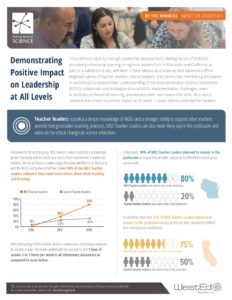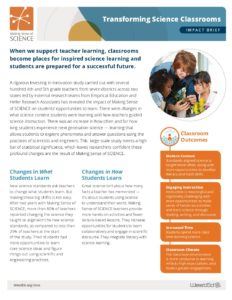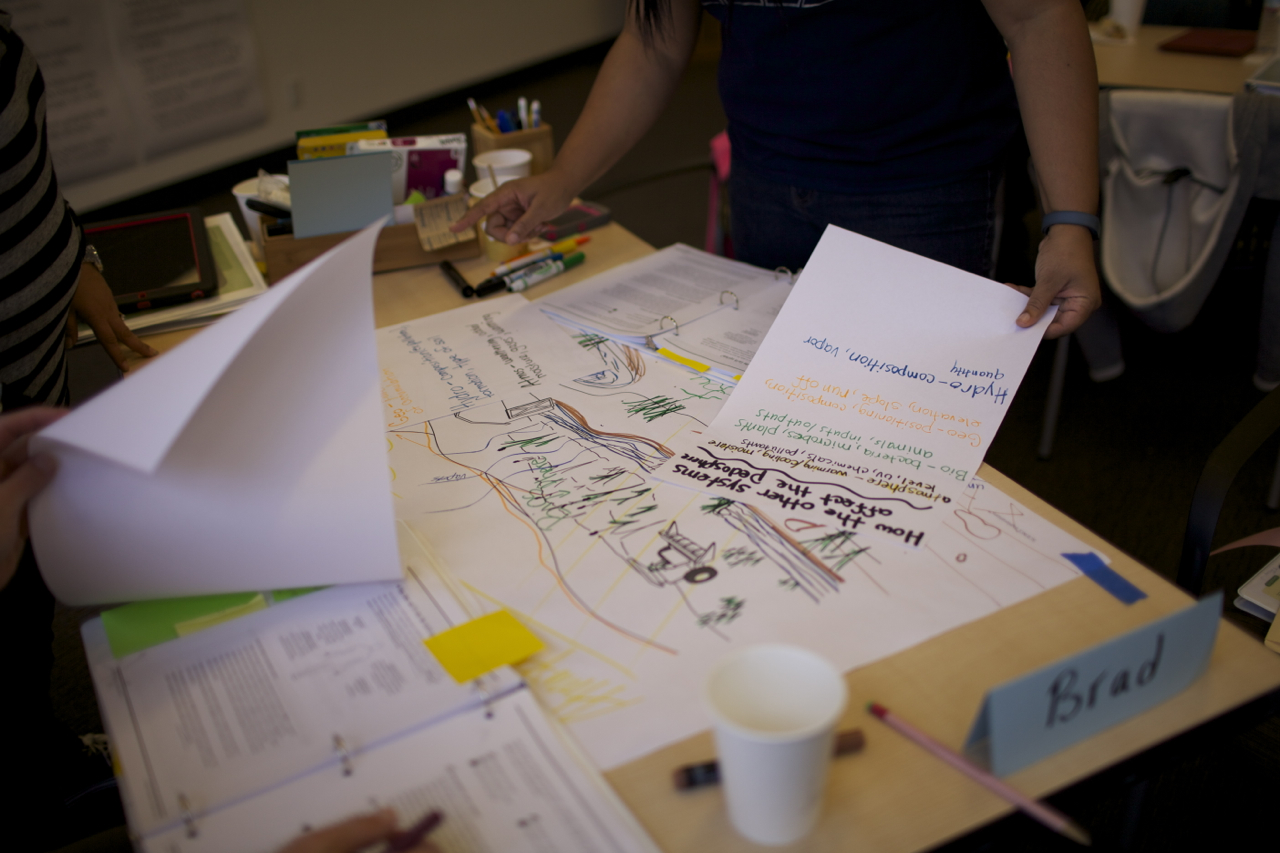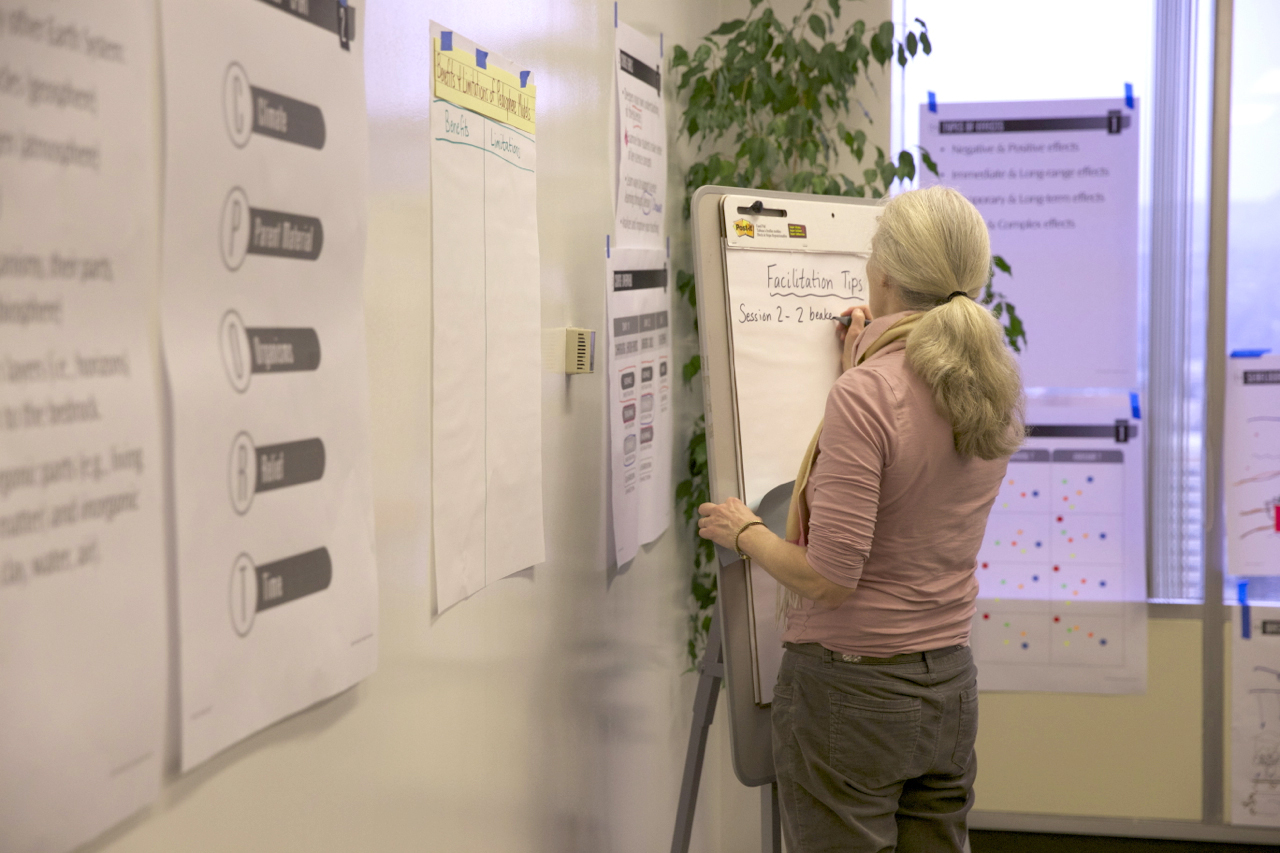January 6, 2021 • Teacher Spotlight
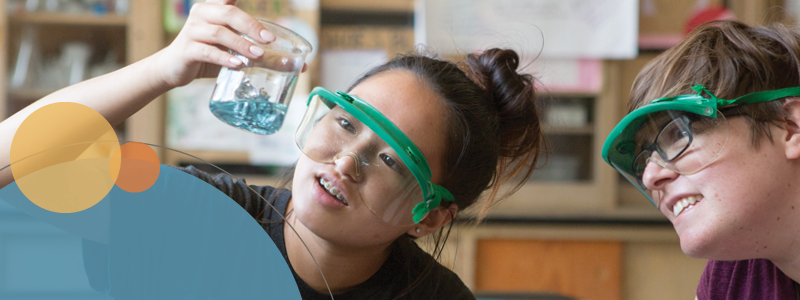
High school teachers in my district have struggled with figuring out how to bundle the Next Generation Science Standards (NGSS) into a cohesive and relevant storyline of instruction. Even envisioning what an NGSS lesson would look like is a challenge — and although few would admit it, they are also up against the limitations of their own content knowledge.
After taking part in the Making Sense of SCIENCE facilitation academy, I decided to host a Dynamic Earth course for my high school teachers in the fall of 2018. Even though the course was originally designed for upper elementary teachers, the content and the methodology were still relevant. I was particularly excited to have them grapple with the concept of systems as it applies to the complexities of our planet, from chemistry to physics to biology.
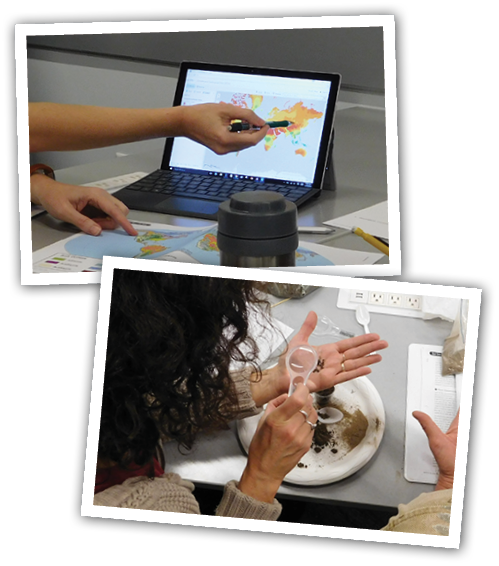
My district was behind the plan and willing to invest heavily in this teacher training. I was feeling confident that everything was going to work out, and in the end, it did — but the first two days of the training were not perfect.
I had to work hard to keep teachers focused and present. But I started seeing collaboration and buy-in from even the most reluctant teachers. When we debriefed Day 1, participants volunteered that the Teaching Case included in the course, though it described an elementary classroom, was a good example of what was expected of teachers and students in next generation science classrooms. It also helped them see the value in analyzing student work. Progress!
We peppered in a variety of investigations that were more relevant to high school throughout the course, including:
- We looked at formative assessment related to the activities we had done in our own adult-level science investigation since they were closer to what was expected of their students. To support our conversations, teachers read excerpts from “Seeing Students Learn Science” — a resource for supporting assessment in next generation science learning
- We also spent some time looking at summative assessment. We explored the latest information on what CAST (Computer Aided Software Testing) items look like and making connections on how they are related to the MSS science investigations from the beginning of the day.
- On our last afternoon together, we focused on instructional strategy, in particular how to bundle performance expectations with their 3-course model, with several hours devoted to allowing teachers to create a storyline for an upcoming lesson or unit.
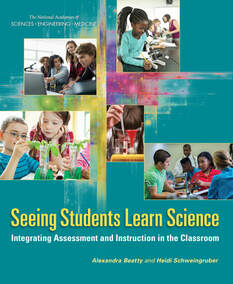
By the end of the five days, I was ready to call it a success. One of our toughest customers, who was originally upset about the five-day commitment, agreed that it was worth it. All the teachers left with a better understanding of systems and a better grasp of the massive interconnectivity between each of the subjects they teach.
Now we are working on keeping the conversations going — through classroom visits and after school meetings — to help the lesson-design process move forward using the ideas learned from the course. We’ve even created an incentive raffle to help entice people to collaborate! We’re also working to incorporate place-based teacher field trips into the schedule to help create connections to local systems. And we’re interested in finding digital tools to support virtual system explorations. We have so many new avenues to explore. The course was just the beginning!
This SCIENCE Corner is part of a series of NGSS-focused posts by educators and leaders in the field. This post was written by Ryan J. Hollister. Ryan is a Secondary Science Coach with Turlock Unified School District in California.
